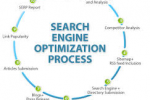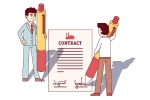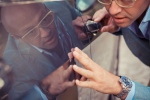There are several reasons to invest in used vehicles. It might be because you are a new buyer and plan to start establishing credit, or because it is sometimes said that used cars are often of greater value in the automotive market. Having said that, not everyone understands just how to buy a used car!

What kind of Vehicle are you Looking for?
The initial step in buying a used vehicle would be to decide which kind of used vehicle is right for you. Are you searching for an SUV because you have a large family? Are you looking for a truck because you have to tow a boat or a trailer? Or do you want a car because you travel a lot for work or school and need to save on gas? You need to calculate your budget and make sure not to break that number when shopping. It’s also smart to have two or three cars of similar class picked out, such as the Chevrolet Malibu, Toyota Camry, or Honda Accord. This helps you determine what you like best once it’s time to do some test driving.
What is your Budget?
The second step is looking at a budget as well as deciding whether the used car will be financed or purchased in cash. There are a number of easy affordability calculators out there that will give you an approximate estimation as to what a vehicle will cost on a monthly basis should you choose to finance. When deciding upon a budget, you have to consider a few questions; if you take out a loan, how much can you afford each month? How much cash can you put down in order to decrease your monthly payment? Once you put together a realistic budget, it is helpful to print a copy out showing your budget and down payment abilities so that if you are looking at a car that is out of your range, it will help bring you back to reality.
How will you be Paying?
After you define a budget, you then need to consider whether you want to pay cash, finance through a bank or through the dealership. The option of financing via the dealership can be advantageous for some, depending on your credit situation and the interest rates the dealership has to offer. Also, if you prearrange financing through a bank or credit union, you may trigger the dealer to compete with the bank, getting you a lower interest rate.
Where to Find your Vehicle?
When searching for a used vehicle, lots of people begin researching online. Many of the used cars on new-car lots are from trade-ins. If you make an offer and are open to negotiations, you just might get a great deal! The Internet is an excellent resource to assist with your hunt. Check out dealer websites as well as read testimonials left by customers to evaluate if it’s a place you’d like to do business with. When you find a potential vehicle, contact the dealership before going in to take a look at the vehicle. By doing this you can ask questions before you come to the lot and you can see whether the vehicle is even still available.
Should I Test Drive?
It is extremely important that you take the vehicle you’re interested in out for a test drive. Be sure to start the engine of the car yourself and be aware of braking, hill-climbing, engine noises, acceleration, visibility, etc. Take your time while driving and try to imagine using that vehicle in your day-to-day life. Do you drive on the Interstate every day? Then get on the Interstate and test it there!
Are you Ready to Negotiate?
If you are confident with the vehicle you just drove, and comfortable with the salesman that is helping you, then it’s a good time to start negotiating the price. Make a first offer that is less than the asking price because the dealer will either accept it or counter-offer. It’s very important to have patience. Sometimes compromising on numbers can take some time while your salesman works with you and his/her manager.
How do I Close the Deal?
At this point, you are ready to move ahead in the process! The next step is to go through Finance & Insurance (F&I). You will always need Insurance on any vehicle you purchase and the dealership’s F&I Manager will be able to help you transfer your Insurance over to the new vehicle. While going through F&I, you should be shown additional options that you can purchase such as an extended warranty, accessories, fabric protection, etc, and these things are something to consider! Once the formal contract is ready, review it carefully. In most states, it will contain the cost of the vehicle, a documentation fee, sales tax and license fees, all very important things.
Once you have been approved for financing and all of the paperwork has been completed, it’s time to relax and enjoy your new vehicle!
Featured images:
- License: Image author owned
Jennifer works at Preston Hood Chevrolet located in Fort Walton Beach, Florida and is the main contributor to the Preston Hood blog.























